Cambodia Banking Restrictions on Crypto Transactions: What You Need to Know in 2025
When you try to send Bitcoin from your phone in Phnom Penh, only to have your Wing Money account frozen for two weeks, you start to wonder: Cambodia banking restrictions on crypto transactions aren’t just rules-they’re reshaping how people use money. It’s not about banning technology. It’s about control. And the consequences are real.
How Cambodia’s Crypto Ban Actually Works
It’s easy to think Cambodia just said ‘no’ to crypto. But that’s not the full story. Since January 2025, the National Bank of Cambodia (NBC) has run a two-tier system that lets some crypto activities happen-only under heavy supervision.
Group 1 includes tokenized securities and stablecoins like USDT or USDC, as long as they’re fully backed by real cash or assets. Banks can hold these, but only up to 15% of their tier 1 capital. They can also offer services like buying, selling, and storing these assets for customers-but only if they get NBC approval first.
Group 2? That’s Bitcoin, Ethereum, and every other unbacked coin. Banks can’t touch them. Not on their books. Not as investments. Not even as custody services. If a bank tries, it risks fines, license suspension, or worse.
This isn’t random. It’s a reaction to chaos. In 2024, the U.S. Treasury sanctioned Cambodian businessman Ly Yong Phat and his companies for running online scam centers where victims lost millions in crypto. The same places where people were forced to work. That’s when Cambodia realized crypto wasn’t just risky-it was being used to hide crime.
What Happened to Binance and Coinbase?
On December 3, 2024, the Telecommunication Regulator of Cambodia (TRC) blocked access to 16 major offshore crypto exchanges. Binance. Coinbase. OKX. All gone from local internet connections.
Why? Because none of them had licenses from the Securities and Exchange Regulator of Cambodia (SERC). The message was clear: if you want to operate here, you play by our rules-or you don’t operate at all.
But here’s the twist: blocking websites didn’t stop people from trading. It just pushed them underground. Now, users rely on peer-to-peer (P2P) platforms, cash deposits, and unregulated brokers. Reddit user ‘PhnomPenhTechie’ reported his Wing Money account was frozen after three small $50 crypto trades. No warning. No explanation. Just locked for 14 days.
The system doesn’t distinguish between a small trader and a money launderer. It flags everything. And when your account gets flagged, you’re stuck waiting for a bureaucracy that answers emails in 72 hours.
Only Two Companies Can Legally Handle Crypto
As of early 2025, only two entities have passed NBC’s approval to offer crypto services: Royal Group Exchange and platforms built on Bakong.
Royal Group Exchange is the only licensed crypto-to-fiat gateway. Users say it works-but it’s slow. You need your national ID, a utility bill, and proof of income. Approval takes 3 days. Daily limits? $5,000. Fee? 0.8%. That’s cheaper than Western Union, but the paperwork is brutal.
Trustpilot reviews for Wing Money show a 2.1 out of 5 stars rating, mostly because of crypto-related headaches. 78% of 142 reviews complain about excessive documentation. One user wrote: “I spent 11 days submitting forms just to send $200 in USDT.”
Meanwhile, Bakong-a government-backed blockchain payment system launched in 2020-has grown to 12.4 million users. It’s fast. It’s cheap. It’s used by 62 banks and 8,600 merchants. But here’s the catch: Bakong doesn’t connect to Bitcoin or Ethereum. It only moves riel and USD between banks. It’s a closed loop. Designed to replace crypto, not work with it.
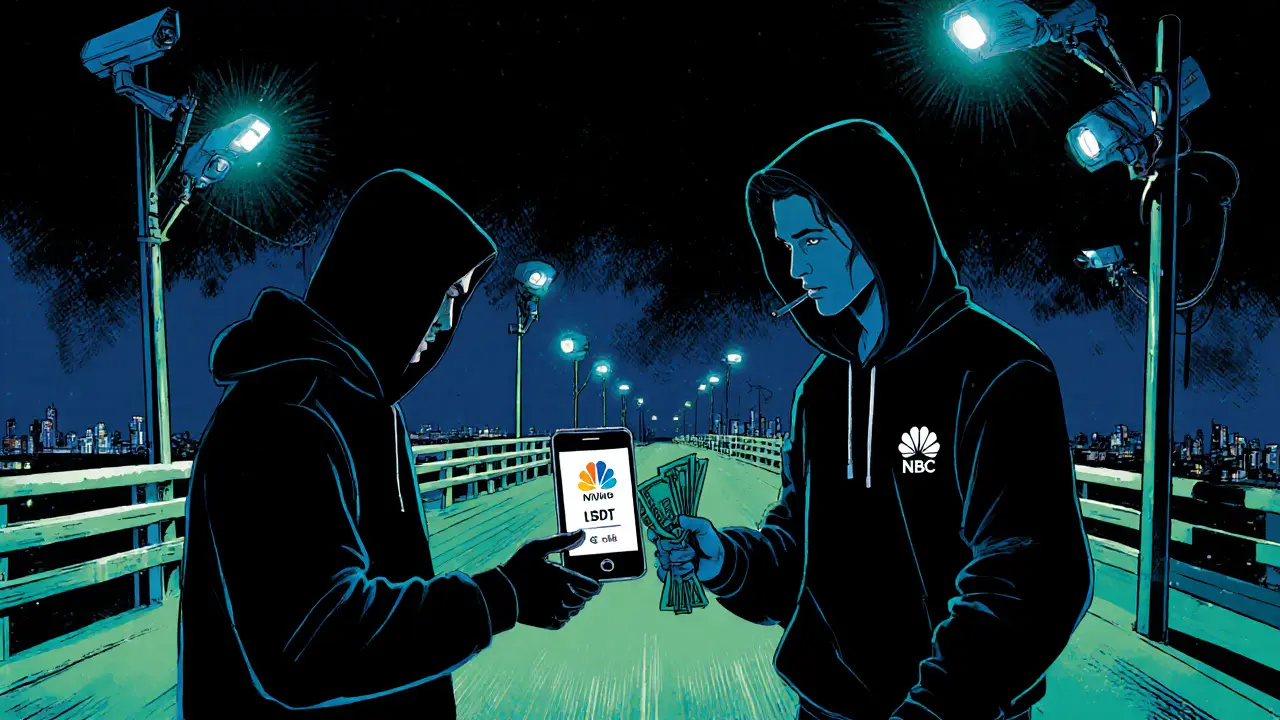
Why Cambodia’s Approach Is Different from Its Neighbors
Thailand lets banks hold up to 20% of their capital in Bitcoin. Singapore allows retail investors to trade Bitcoin futures. Vietnam permits licensed banks to custody crypto assets.
Cambodia? It’s the strictest in Southeast Asia.
The NBC’s 15% exposure cap on Group 1 assets is actually stricter than the Basel Committee’s global recommendation of 2% for unbacked crypto. That shows how deeply cautious they are. They’re not trying to be innovative. They’re trying to survive.
That caution comes at a cost. Cross-border payments in Cambodia take 3-5 business days. In Vietnam, blockchain systems do it in 24 hours. Remittance fees here are 6.8%. In Laos, where crypto corridors are allowed, they’re 4.2%.
And for the 68% of rural Cambodians who don’t have bank accounts? Crypto could’ve been their bridge to finance. Instead, they’re locked out-by design.
The Human Cost of the Ban
Dr. Sophal Ear, a professor at Occidental College, says Cambodia’s ban protects the riel and keeps inflation low (6.2% in 2025, compared to 15.3% in the region). That’s true. But David Kust from Kapronasia points to another side: illicit crypto activity jumped 37% last year. Chainalysis data shows people aren’t giving up-they’re just going darker.
Then there’s the $8.93 million in USDT transactions between South Korean exchanges and Huione Guarantee-a company sanctioned by the U.S. Treasury. That’s a 1,400x increase from 2023. The ban didn’t stop money flows. It redirected them through sanctioned entities.
Small businesses suffer too. AgriTech startup RiceX raised $2 million in stablecoins in December 2024. But it took 10 days just to get approval. “It was worth it,” they said. “We needed certainty.” But what about the thousands of others who can’t wait-or don’t know where to start?”
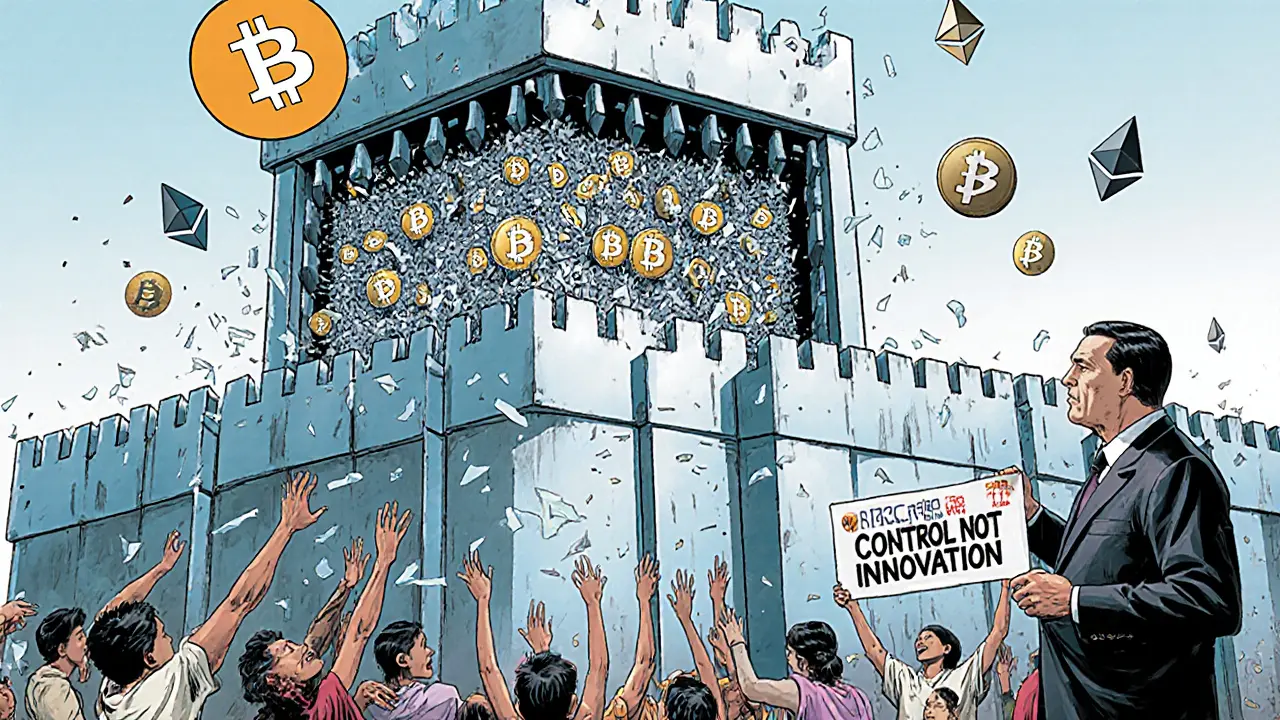
What’s Next for Cambodia’s Crypto Rules?
The NBC’s 2025-2026 roadmap includes even tighter controls: mandatory real-time monitoring of all crypto-fiat conversions, and a complete ban on any bank working with unlicensed offshore platforms-even if they’re based in the U.S. or Singapore.
They’re also pushing Bakong as the future. NBC Governor Chea Chanto said in November 2024: “We won’t recognize private cryptocurrencies as legal tender until Bakong is stable.”
But Bakong isn’t blockchain in the open-source sense. It’s a permissioned ledger. Only banks can run nodes. No public access. No DeFi. No NFTs. No innovation beyond payments.
The IMF warns this could cost Cambodia $1.2 billion in missed fintech investment by 2027. The NBC doesn’t care. Their priority isn’t growth. It’s control.
Can You Still Use Crypto in Cambodia?
Technically, yes. But not easily.
If you’re an individual:
- You can buy USDT or USDC through Royal Group Exchange-with ID, proof of address, and a 3-day wait.
- You can’t buy Bitcoin or Ethereum through any bank.
- P2P trades are risky. Your account might freeze without warning.
- Offshore exchanges are blocked. You’ll need a VPN, which is legal but not safe.
If you’re a business:
- You can receive stablecoin payments-if you apply for CASP status.
- It takes 90-120 days and 47 documents.
- Cost? At least $350,000 to integrate with Bakong.
- Staff must complete 120 hours of NBC-certified training.
There’s no middle ground. Either you play by the rules and wait months-or you risk everything and go underground.
Is Cambodia’s Strategy Working?
On paper, yes. Cambodia’s anti-money laundering rating jumped from “partially compliant” in 2021 to “largely compliant” in 2024, thanks to the NBC’s crackdown.
But real people are paying the price. The crypto adoption rate dropped from 4.7% in 2021 to just 2.1% in 2024. That’s not because people lost interest. It’s because the system made it too hard.
Meanwhile, the global crypto economy keeps growing. Cambodia isn’t just missing out on innovation-it’s missing out on financial inclusion. For millions of unbanked citizens, crypto could’ve been the first step into the formal economy. Instead, they’re left with slow bank transfers and high fees.
The NBC thinks they’re protecting the system. But what they’ve built isn’t a safe haven. It’s a maze. And the people who need access the most? They’re the ones getting lost.

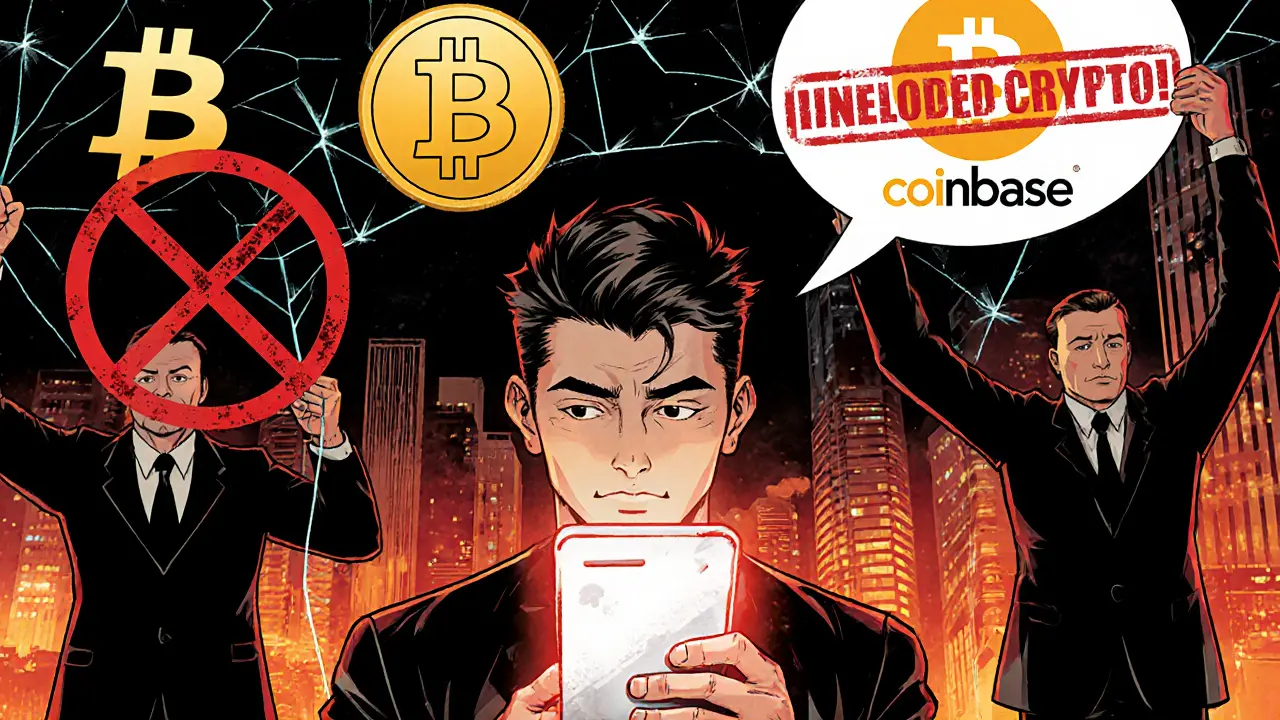
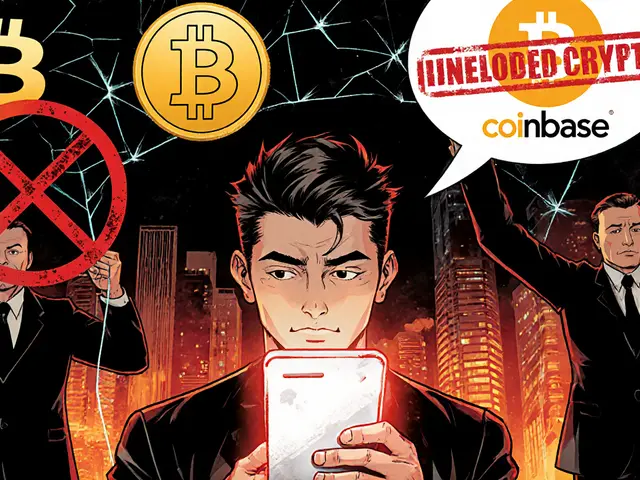
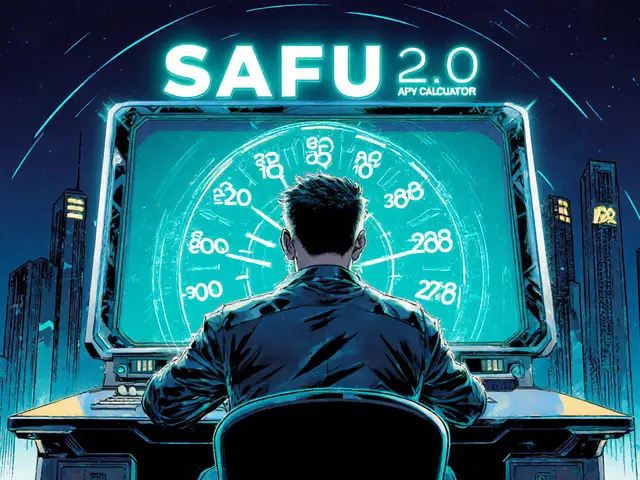
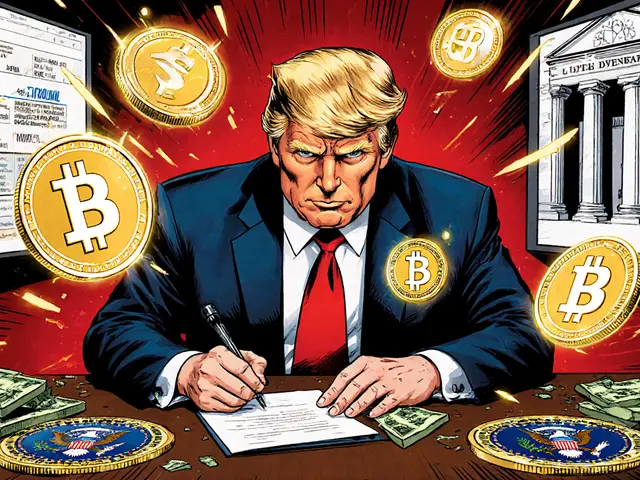
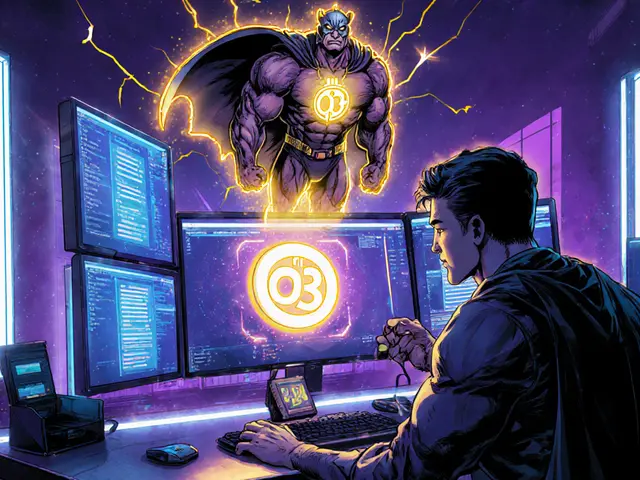
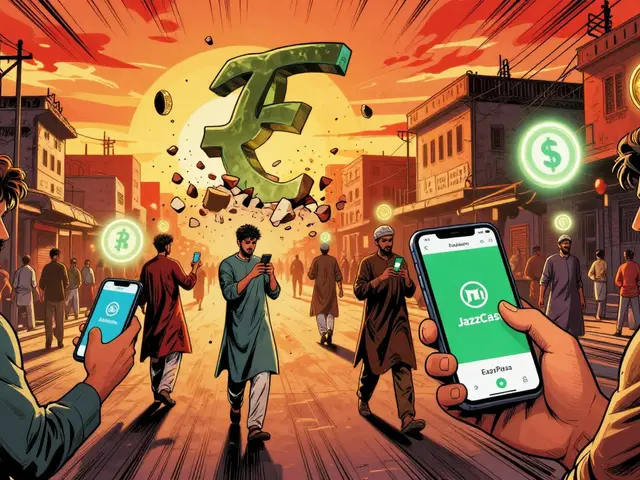
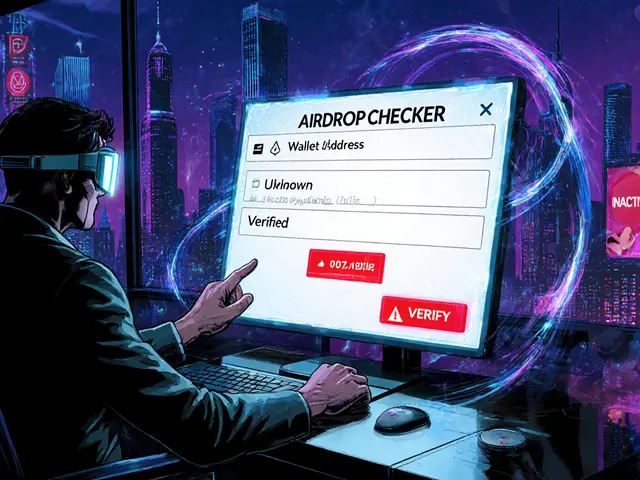
lol good luck using crypto in cambodia 🤡
I just can't believe this... I mean, seriously? People are getting their accounts frozen over $50 trades??? This isn't regulation, this is digital authoritarianism with a side of bureaucracy... I've seen worse, but this? This is just cruel. And they call it 'stability'? Nah. It's control. Pure and simple. And the worst part? The people who need it the most - the rural folks, the small vendors, the remittance senders - they're the ones getting crushed. This isn't protecting the economy. It's protecting the elite from having to innovate.
Cambodia's approach is not unique in Asia. Many nations prioritize financial sovereignty over speculative assets. The NBC's caution is prudent given the region's history with unregulated digital finance. While innovation is desirable, systemic stability must precede it. The 15% capital cap aligns with prudent risk management, even if it appears restrictive.
They banned crypto so the government can control every dollar. Classic.
Oh wow, so Cambodia finally figured out that crypto isn't some magical free money machine? Good. Took them long enough. Meanwhile in the US, we're letting hedge funds pump shitcoins while grandma loses her Social Security to rug pulls. At least here, they're not letting criminals turn Phnom Penh into a money laundering playground. Stop whining about 'financial inclusion' - when your 'inclusion' means enabling fraud, I'd rather be excluded.
The fact that people still think crypto is about freedom is the real tragedy. This isn't oppression it's common sense. You want to trade unbacked tokens? Go to a jurisdiction that doesn't care about its citizens. But don't pretend you're the victim when your reckless behavior forces governments to react.
I lived in Siem Reap for a year and saw firsthand how P2P crypto was becoming the informal economy. People were using it to pay for school fees, send money home, buy medicine. The banks didn't care - they just froze accounts. It’s not about crime prevention. It’s about control. And the irony? Bakong is basically a state-run blockchain. They just don’t want *you* to have one.
I feel so sad for the small business owners trying to survive here. I know a woman in Battambang who sells handmade textiles - she was using USDT to get better prices from Thai suppliers. Now she's stuck paying 6.8% fees and waiting 5 days for wire transfers. The ban didn't stop crypto - it just made life harder for the people who need it most. Maybe the goal should be inclusion, not isolation.
It's funny how we call this 'control' like it's a bad thing. What if control is what keeps the system from collapsing? Look at Venezuela. Look at Nigeria. Crypto didn't empower the people - it just gave them a faster way to lose everything. Maybe Cambodia isn't trying to be the future. Maybe it's trying to avoid the past.
Wait so if I buy USDT through Royal Group Exchange, I can't then use it to pay someone who uses Bakong? Or is Bakong totally separate? I'm confused. Like, if it's all digital money, why can't they talk to each other? And why does it take 3 days just to send $200? Is there no way to speed this up? I feel like I'm reading about a system designed to make people give up.
America lets anyone trade Dogecoin on their phone. We have a president who tweets crypto memes. Meanwhile Cambodia says ‘no’ to Bitcoin and actually enforces it? That’s the kind of discipline we need here. Stop acting like these people are oppressed. They’re not. They’re just not allowed to gamble with their life savings on a meme coin.
While the regulatory environment in Cambodia may appear draconian, it is rooted in a pragmatic understanding of financial risk. The National Bank of Cambodia has chosen to prioritize macroeconomic stability over speculative innovation - a decision that, while unpopular among crypto advocates, aligns with the long-term interests of its population. The high barriers to entry for businesses are not merely bureaucratic hurdles; they are safeguards against systemic exposure. In an economy where 68% of the population remains unbanked, the priority must be foundational financial integrity - not the allure of decentralized assets.
i know this sounds crazy but... what if the ban is actually working? like, i get that it sucks for people trying to send money, but if the scams dropped and the money laundering slowed down, maybe it's worth it?? 🤔 just saying... maybe we're too quick to call it 'oppression' when it's really just a really strict firewall. also i hope they fix the Wing Money app soon 😅
There’s a deeper truth here: Cambodia didn’t ban crypto because it’s dangerous. It banned it because crypto threatens centralized power. Bakong isn’t about innovation - it’s about replacing the wild west with a state-monitored highway. And the irony? The people who could’ve used crypto to leapfrog into the financial system are now locked out. This isn’t protection. It’s a digital caste system - where only the well-documented, the patient, and the wealthy get to play.
The NBC’s 15% exposure cap is actually more conservative than the Basel Committee’s guidance for unbacked crypto assets - which is 2%. This isn’t overreach; it’s hyper-prudent. The cost of systemic failure in a developing economy is catastrophic. The IMF’s $1.2B projection ignores the fact that fintech investment without governance is just capital flight with a blockchain label. Cambodia is choosing resilience over hype.
You think this is about crypto? Think again. The real target is the U.S. dollar. The NBC is terrified that stablecoins will replace the riel. That’s why Bakong exists - not to help people, but to lock them into a state-controlled currency. The crypto ban? Just the tip of the iceberg. Soon, they’ll track your every transaction. They already have your ID, your face, your biometrics. What’s next? A social credit score tied to your Bakong wallet? Don’t say I didn’t warn you.